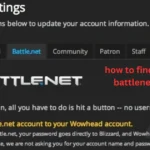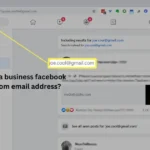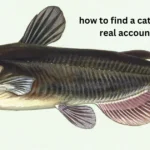Losing a loved one is never easy. Dealing with their affairs afterward can be a confusing and difficult time. One of the tasks you might face is finding their bank accounts.
This can seem like a big job, but knowing where to look and what to do can make things simpler. This guide will help you through the process of finding a deceased person’s bank accounts, step-by-step.
Why You Might Need to Find a Bank Account of the Deceased
There are many reasons why you might need to find the bank accounts of someone who has passed away. Usually, it’s to help settle their estate. This means taking care of their money and property. Here are some common reasons:
- Paying bills: Even after someone passes away, their bills still need to be paid. Things like utility bills, rent, or credit card bills might need to be paid from their bank account.
- Distributing inheritance: If the deceased person left money to others in a will, you’ll need to access their accounts to give the money to the right people.
- Closing accounts: It’s important to close any bank accounts the deceased person had to prevent any issues like identity theft or fees.
- Filing taxes: A final tax return often needs to be filed for the deceased person.1 Their bank records will be important for this.
How to Find a Bank Account of the Deceased: Starting the Search
Before you begin your search, gather some important documents. These will help you find the information you need:
- Death certificate: This is an official document that proves the person has passed away. You’ll need it for most of the steps in this process.
- Will: A will is a legal document that says how a person wants their property to be handled after they die. It might list their bank accounts or give clues about where to find them.
- Recent bank statements: If you have access to any of the deceased person’s recent mail, look for bank statements. These will give you the names of the banks and account numbers.
- Checkbook: A checkbook will show the names of the banks where the person had accounts.
- Safe deposit box key: Many people keep important documents in a safe deposit box at a bank. If the deceased person had one, it might contain information about their accounts.
- Tax returns: Tax returns often show interest earned from bank accounts, which can help you identify where they banked.
How to Find a Bank Account of the Deceased: Methods to Use
The first place to look is in the deceased person’s personal records. They might have kept important papers in a file cabinet, desk, or safe. Look for things like bank statements, checkbooks, passbooks, or any documents showing bank names or account numbers.
Contact Banks Directly
If you have an idea of where the person might have banked, contact those banks directly. You’ll need to provide the deceased person’s name, date of birth, and death certificate. The bank might be able to tell you if they had an account there.
Search Online Banking Records
If you have access to the deceased person’s computer or phone, you might be able to find their bank accounts by checking their online banking history or saved passwords.
Mail Search
Look through the deceased person’s mail for bank statements, letters from banks, or other clues about their accounts.
Safe Deposit Box
If the deceased person had a safe deposit box, check the contents for bank statements, passbooks, or other financial documents. You’ll likely need a court order or be named as a joint owner to access the box.
Review Tax Returns
Tax returns often list interest income from bank accounts. This can help you identify banks where the person had accounts.
Contact the State Unclaimed Property Office
If an account has been inactive for a certain amount of time, the bank might turn the money over to the state. You can search the state’s unclaimed property website using the deceased person’s name.
Hire a Professional
If you’re having trouble finding the accounts, you can hire a professional to help. This could be an accountant, attorney, or a specialist in locating assets.
How to Find a Bank Account of the Deceased: Using State Resources
Each state has an unclaimed property office that holds unclaimed money or property. This can include things like forgotten bank accounts, uncashed checks, or life insurance policies. Here’s how to use this resource:
- Find your state’s website: Do an online search for “[your state] unclaimed property” to find the official website.
- Search the database: Enter the deceased person’s name and city to see if they have any unclaimed property.
- File a claim: If you find a match, follow the instructions on the website to file a claim. You’ll usually need to provide a death certificate and proof of your relationship to the deceased.
| State | Unclaimed Property Website |
|---|---|
| California | www.sco.ca.gov |
| New York | www.osc.state.ny.us |
| Texas | comptroller.texas.gov/up |
| Florida | fltreasurehunt.gov |
How to Find a Bank Account of the Deceased: Working with the Bank
Once you’ve found a bank account, you’ll need to contact the bank to access it. Here are some things to keep in mind:
- Legal authority: You’ll need to show that you have the legal right to access the account. This might mean being named as the executor in the will, being the next of kin, or having power of attorney.
- Required documents: Be prepared to provide documents like the death certificate, your identification, and possibly a court order.
- Account access: The bank will let you know what steps to take to access the account, which might involve closing it or transferring the funds.
How to Find a Bank Account of the Deceased: Important Considerations
- Privacy concerns: Banks take privacy seriously. Be prepared to provide documentation to prove your relationship to the deceased and your right to access their information.
- Joint accounts: If the deceased person had a joint account with someone else, that person will likely still have access to the account.
- Time limits: Some states have time limits for claiming assets. Don’t wait too long to start your search.
How to Find a Bank Account of the Deceased: If There Is No Will
If the deceased person didn’t have a will, the process for handling their estate can be a bit more complex. Here’s what you should do:
- Determine the next of kin: State laws determine who inherits property when someone dies without a will. This is usually a spouse, children, or other close relatives.
- Probate court: You’ll likely need to go to probate court to be officially appointed as the administrator of the estate. This gives you the legal authority to handle the deceased person’s affairs.
- Follow the same steps: Once you have legal authority, you can follow the same steps outlined above to find and access the deceased person’s bank accounts.
| Situation | Who Inherits |
|---|---|
| Spouse and children | Spouse and children share the estate |
| Spouse, but no children | Spouse inherits the entire estate |
| Children, but no spouse | Children inherit the entire estate |
| No spouse or children | Parents, siblings, or other relatives inherit, depending on state law |
How to Find a Bank Account of the Deceased: Conclusion
Finding a bank account of the deceased can seem overwhelming, but by taking a systematic approach and using the right resources, you can make the process easier. Remember to gather important documents, check the deceased person’s records, contact banks directly, and utilize state resources like unclaimed property offices.
If you encounter difficulties, don’t hesitate to seek help from professionals like attorneys or accountants. By following these steps, you can efficiently locate the necessary financial information and proceed with settling the deceased person’s estate.
FAQs
How can I find out if my deceased father had a bank account?
To find your deceased father’s bank account, start by checking his personal records for bank statements or checkbooks. You can also contact banks directly if you have an idea of where he might have banked. Remember to have his death certificate handy. If you’re still having trouble, try searching your state’s unclaimed property website.
What do I need to do to access a deceased person’s bank account?
To access a deceased person’s bank account, you’ll need to prove your legal authority. This might involve being named in the will as the executor, being the next of kin, or having power of attorney. You’ll also need to provide the bank with documents like the death certificate and your identification.
Can I access a deceased person’s bank account if there is no will?
If there is no will, you’ll likely need to go to probate court to be appointed as the administrator of the estate. This gives you the legal authority to handle the deceased person’s financial affairs, including accessing their bank accounts.
Where can I find information about unclaimed bank accounts?
Each state has an unclaimed property office that holds unclaimed funds, including forgotten bank accounts. You can find your state’s unclaimed property website by doing an online search for “[your state] unclaimed property.”
What should I do if I can’t find any information about the deceased person’s bank accounts?
If you’re having trouble locating the bank accounts, consider hiring a professional for assistance. This could be an accountant, attorney, or a specialist in locating assets. They can help you with the search and ensure you follow the correct procedures.







